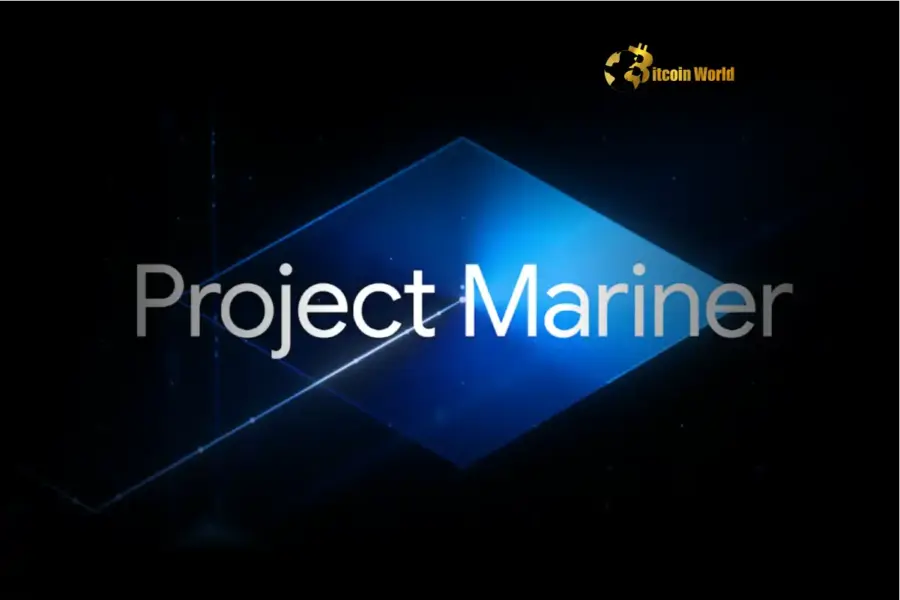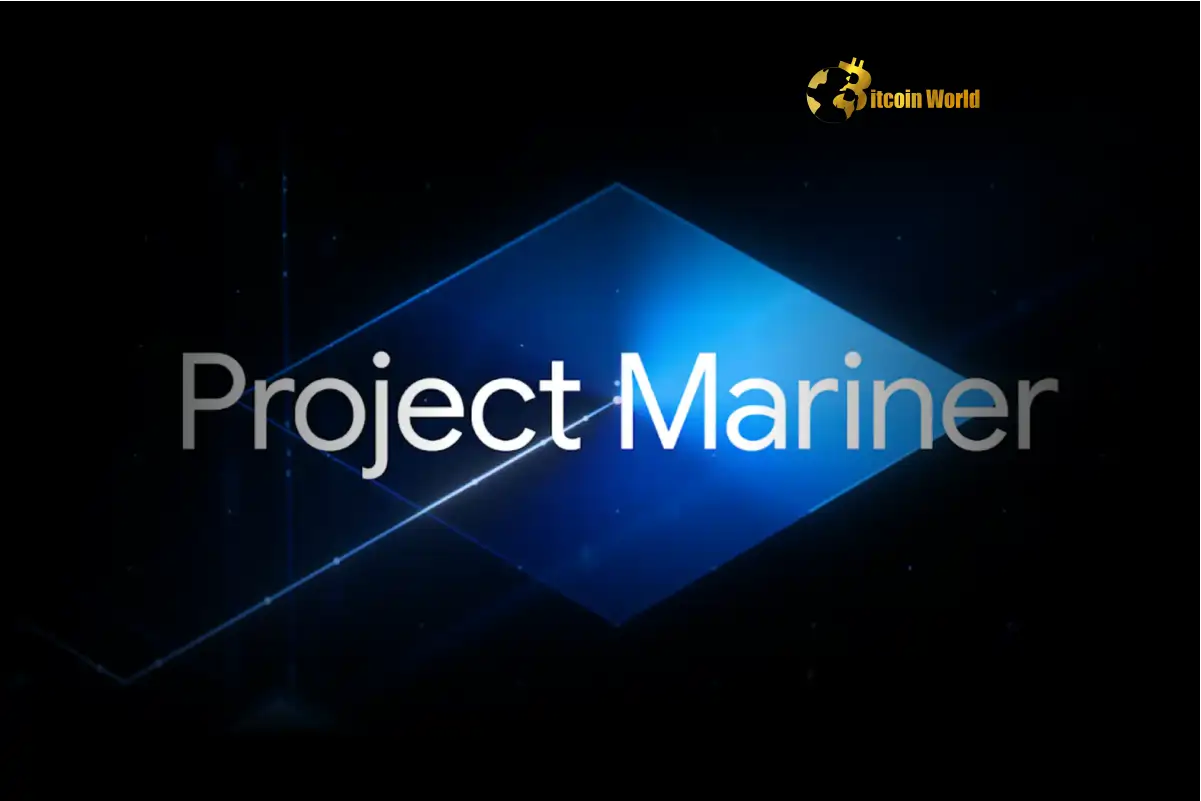Project Mariner: Google Unleashes Powerful Web Browsing AI Agent
0
0

BitcoinWorld

Project Mariner: Google Unleashes Powerful Web Browsing AI Agent
The intersection of artificial intelligence and web interaction is constantly evolving, and a major development just dropped from Google. At their highly anticipated Google I/O 2025 conference, the tech giant announced the wider rollout of Project Mariner, their experimental Web Browsing AI agent. This isn’t just another AI tool; it’s designed to fundamentally change how we use the internet by acting on our behalf.
What is Google’s Project Mariner?
At its core, Project Mariner is an AI agent built by Google AI that can browse and interact with websites just like a human user. Instead of you opening a browser, navigating to a site, and clicking through steps, you tell the AI agent what you want to achieve, and it handles the online actions for you. Think of it as delegating your online chores to a highly capable digital assistant.
This initiative represents Google’s significant effort to redefine user experience online. Company leaders view Project Mariner as part of a shift where users delegate more tasks to an AI agent rather than performing them manually across different websites.
Significant Updates Unveiled at Google I/O 2025
The big news from Google I/O 2025 wasn’t just the wider availability, but also the substantial improvements made to Project Mariner. Google has addressed key limitations of earlier versions, making the agent far more practical and efficient.
Key updates include:
- Cloud-Based Operation: The agent now runs on virtual machines in the cloud. This is a critical change from the previous version, which ran directly in the user’s browser.
- Multitasking Capability: The updated Project Mariner can handle up to 10 tasks simultaneously.
- Improved Performance: Running in the cloud, similar to agents from competitors, allows the agent to operate more smoothly in the background.
This move to the cloud and the ability to multitask significantly enhances the utility of the AI agent. Previously, using Project Mariner meant you couldn’t use other tabs or applications on your computer while it was working, which limited its real-world usefulness. The new architecture liberates users to continue their work or browsing while the agent handles tasks in the background.
How Can You Access Project Mariner?
For now, access to the full capabilities of Project Mariner is being rolled out gradually. Initially, it will be available to U.S. users who subscribe to Google’s new AI Ultra plan, priced at $249.99 per month. Google has stated that support for more countries is coming soon.
Beyond the direct user subscription, Google is also making the underlying capabilities of Project Mariner available to developers. The agent’s power is being integrated into the Gemini API and Vertex AI, Google’s platform for building and deploying AI models. This means developers can leverage Web Browsing AI functionalities within their own applications, potentially leading to a new wave of AI-powered services.
Real-World Examples: Delegating Tasks to Your AI Agent
So, what kinds of tasks can you delegate to this AI agent? The vision is for Project Mariner to handle complex online processes that typically require multiple steps and website interactions. Google provides examples such as:
- Purchasing tickets for an event like a baseball game.
- Buying groceries from an online store.
In these scenarios, you wouldn’t need to visit Ticketmaster, StubHub, or your preferred grocery delivery service directly. You would simply communicate your request to Google’s AI agent, and it would navigate the necessary websites, fill in details, and complete the transaction on your behalf. Google is already working with partners like Ticketmaster, StubHub, Resy, and Vagaro to facilitate these agentic flows.
Competition in the Web Browsing AI Space
Google isn’t the only player in this emerging field of Web Browsing AI agents. Several other major tech companies are also developing similar experimental tools. Competitors mentioned include:
- OpenAI’s Operator
- Amazon’s Nova Act
- Anthropic’s Computer Use
It’s important to note that all these tools are currently in experimental stages. Early experiences with prototypes have shown they can be slow and prone to errors. However, Google emphasizes that it has incorporated feedback from early testers to improve Project Mariner’s capabilities, particularly with the move to cloud infrastructure.
Project Mariner and the Future of Web Interaction
The rollout of Project Mariner, alongside related initiatives like AI Mode in Google Search (initially in Search Labs) and the unveiled early demo of Agent Mode (combining browsing, research, and app integrations for AI Ultra subscribers), signals Google’s commitment to agentic experiences. These tools are set to change more than just how individual users navigate the web; they have potential implications for the entire internet economy.
How will websites adapt if users are delegating tasks to AI agents instead of visiting sites directly? How will vendors ensure their services are compatible with or optimized for interaction with these agents? These are questions the industry will grapple with as Web Browsing AI becomes more prevalent.
While still in its early phases and primarily accessible through a premium subscription, Project Mariner represents a significant step towards a future where AI agents act as intermediaries for many of our online activities. The success of this shift will depend on the reliability, security, and broad adoption of these powerful new tools.
To learn more about the latest AI agent trends, explore our article on key developments shaping AI features.
This post Project Mariner: Google Unleashes Powerful Web Browsing AI Agent first appeared on BitcoinWorld and is written by Editorial Team
0
0
 Manage all your crypto, NFT and DeFi from one place
Manage all your crypto, NFT and DeFi from one placeSecurely connect the portfolio you’re using to start.





